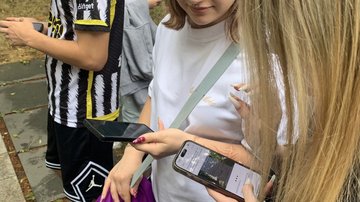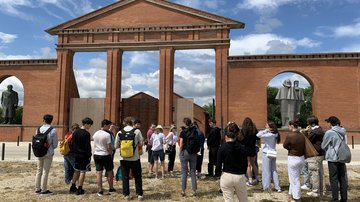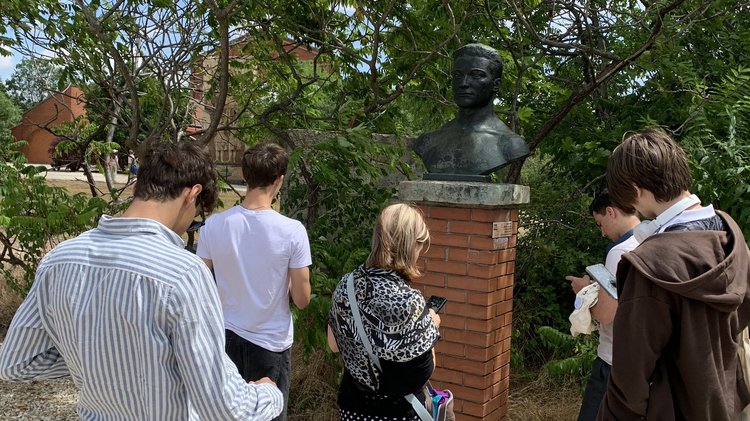Against forgetting - 80 years after Holocaust in Hungary
Against forgetting - 80 years after Holocaust in Hungary
Facts and figures regarding the youth encounter:
Facts and figures regarding the youth encounter:
- Dates of the project: 6th to 13th July 2025
- 29 participants from eight countries: Hungary, France, Latvia, Germany, Poland, Slovakia, Romania and Ukraine
- Age: 16 to 22 years
- Programme highlights: Exploration of the Jewish Quarter in Budapest, engagement with the local historical digital application, the "Zachor-IWalk" program, discovering testimonies of the USC Shoah Foundation's Visual History Archive, visit to the Memento Park, the House of Terror Museum, and the War Cemetery in Budaörs
- Partner organisations: Zachor Foundation for Social Remembrance, National Youth Council of Slovenia, College of Eastern Europe, German War Graves Commission, The Olga Lengyel Institute for Holocaust Studies and Human Rights Education
During the youth exchange “Against forgetting - 80 years after the Holocaust in Hungary”, participants engaged in a multifaceted educational program focused on Holocaust memory, Hungarian Jewish history, and remembrance culture. Participants immersed in meaningful historical-political discourse surrounding 20th-century war crimes, with a particular emphasis on the Holocaust and its aftermath in Hungary.
The event began with an expert lecture on Hungarian Jewish history, followed by a peer-guided walking tour of Budapest’s Jewish Quarter. This allowed students to explore the community’s cultural legacy and post-war challenges through place-based learning. Participants examined video testimonies from the USC Shoah Foundation’s Visual History Archive and learned about the Zachor-IWalk mobile app. They viewed the documentary "Monument to the Murderers" and participated in a digital history walk (Zachor-IWalk) in Városmajor, promoting direct engagement with survivor narratives and digital tools for historical education.
Excursions showcased very different parts of Hungarian history and remembrance. At the Budaörs German Military Cemetery the students explored contested narratives about the remembrance of WWII war crimes.
In the Memento Park participants examined Hungary’s socialist past through its monuments, enhanced by survivors’ personal recollections. The House of Terror Museum allowed an immersive exploration of the impact of totalitarian regimes on everyday life and their representation in public memory.
Reflection sessions made an important part in the programme. They were facilitated by educators and experts, helping participants process emotional responses, link historical events to present-day issues, and cultivate empathy for underrepresented voices.
Creative production formed the second half of the week, with small groups developing podcast episodes and banners for the joint traveling exhibition of the overall project. The process included brainstorming, drafting concepts, and dedicating the final day to producing and presenting their work, followed by a peer review session encouraging collaborative feedback and improvement.
Participants demonstrated a deepened understanding of the Holocaust, its antecedents and consequences, and the contemporary importance of memory politics. Interactions with survivor testimonies, site visits, and group discussions encouraged participants to consider multiple, often underrepresented perspectives, and showed how individual stories and collective memory shape historical understanding. The event supported the development of critical thinking, empathy, and historical awareness, motivating participants to recognize their responsibility in preserving memory and advocating for human rights and social justice locally and globally.



